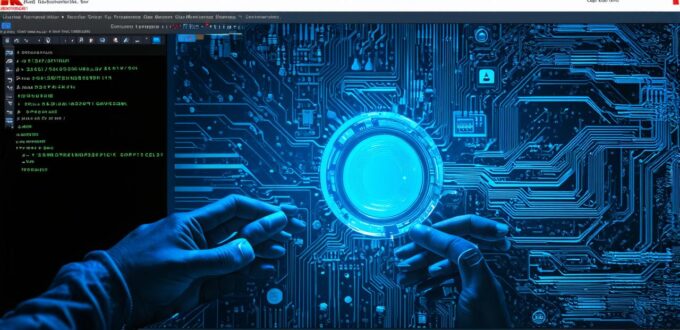As a software developer, you are no stranger to the world of technology and its myriad tools and solutions. However, have you ever stopped to consider what exactly software is and how it affects our daily lives? In this comprehensive guide, we will explore the concept of software in-depth and examine its role in modern society.
What is Software? A Definition
To begin with, let’s define what we mean by the term software. At its core, software refers to a set of instructions that tells a computer what to do. These instructions are written in a programming language and can be executed by a computer to perform various tasks, such as word processing, web browsing, or gaming. Software is an ever-evolving technology that has become essential for almost every aspect of our lives.
The History of Software
The history of software dates back to the 1940s, when the first computers were developed. Early software was primarily focused on scientific research and military applications, with the first commercial software being developed in the 1960s. Over time, software has evolved to include a wide range of applications that are used in daily life, including operating systems, productivity tools, and entertainment software.
Types of Software
There are several different types of software, each with its own unique purpose and functionality. These include:
- Operating Systems: An operating system (OS) is the foundation upon which all other software runs. It manages the computer’s hardware and provides a user interface for interacting with the computer. Examples of modern operating systems include Windows, macOS, and Linux. Operating systems are responsible for managing the core functions of a computer, such as memory management, process scheduling, and device drivers.
- Productivity Software: Productivity software includes applications that are designed to help users create and manage documents, spreadsheets, presentations, and other types of files. Examples of productivity software include Microsoft Office, Google Docs, and Adobe Creative Suite. These tools enable people to work more efficiently and effectively, increasing their productivity and streamlining their workflow.
- Multimedia Software: Multimedia software includes applications that are used for creating and editing audio, video, and images. Examples of multimedia software include Final Cut Pro, Photoshop, and Audacity. These tools allow people to create and manipulate media content, enabling them to express themselves creatively and share their work with others.
- Gaming Software: Gaming software is designed specifically for use in video games and includes game engines, development tools, and other technologies that enable developers to create immersive gaming experiences. These tools allow game developers to create complex and engaging games that captivate players and provide hours of entertainment.
- Application Software: Application software includes programs that are designed to perform specific tasks or functions, such as web browsing, email management, or social media. Examples of application software include Google Chrome, Outlook, and Facebook. These tools allow people to perform specific tasks quickly and efficiently, making their lives easier and more convenient.

The Role of Software in Modern Society
Software has played a crucial role in shaping modern society and has had a profound impact on the way we live our lives. Some of the key ways that software has influenced modern society include:
- Communication: Software has revolutionized the way we communicate with each other, enabling us to connect with people from all over the world through email, social media, and other communication platforms. This has made it easier for people to stay in touch with friends and family, collaborate on projects, and share information and ideas.
- Commerce: Software has transformed the way we buy and sell goods and services. E-commerce platforms like Amazon and eBay have made it possible for anyone to start a business and sell products online, while payment systems like PayPal have made it easier for people to make purchases without revealing their credit card information.
- Education: Software has revolutionized the way we learn and teach. Online learning platforms like Coursera and edX have made it possible for people to access educational resources from anywhere in the world, while collaboration tools like Google Classroom have made it easier for teachers to manage assignments and communicate with students.
- Healthcare: Software has transformed the way healthcare is delivered and managed. Electronic health records (EHRs) have made it easier for doctors and nurses to access patient information, while telemedicine platforms have made it possible for patients to receive medical care remotely.
- Entertainment: Software has transformed the way we consume and create entertainment content. Streaming services like Netflix and Hulu have made it possible for people to watch movies and TV shows on demand, while music production software like Ableton Live has made it easier for musicians to create and share their music.
Conclusion
In conclusion, software plays a crucial role in shaping our modern society and has had a profound impact on the way we live our lives. From communication and commerce to education and healthcare, software has transformed virtually every aspect of our daily lives. As technology continues to evolve, we can expect to see even more exciting developments in the world of software, enabling us to do even more amazing things with computers and other digital devices.
